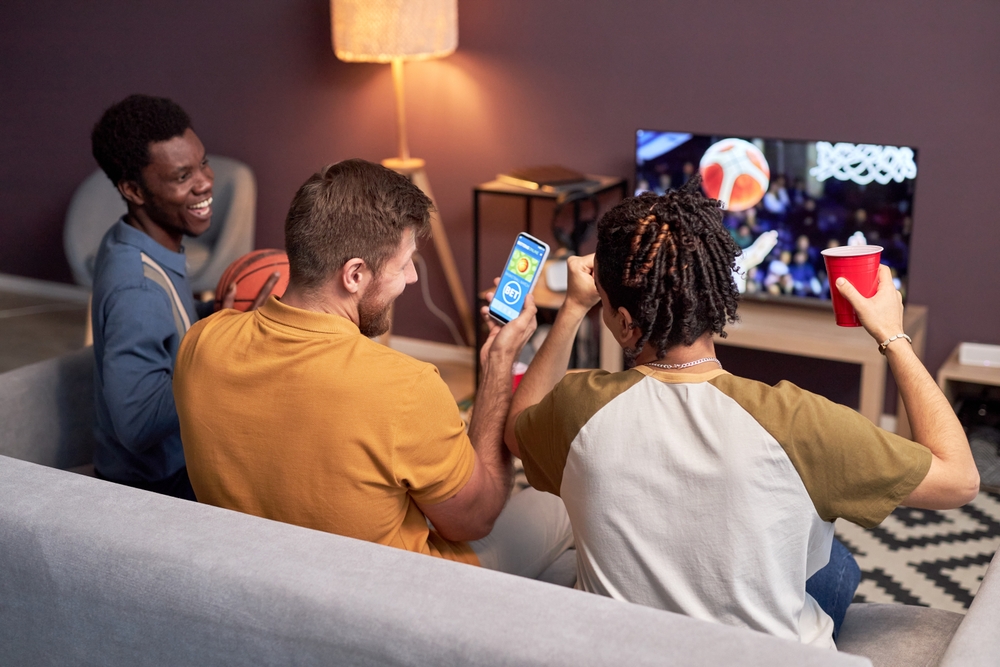CBS 60 Minutes featured a segment about the rise of sports betting and its effect on younger generations. It is vital that large media outlets like 60 Minutes spread awareness about the rise in sports betting and the value of moderation and getting gambling-specific treatment for those who develop an addiction. Continue reading for an overview of Season 56 Episode 18 titled “The Mismatch”.
How Legal, Mobile Sports Betting Affects Problem Gambling
During the pre-Super Bowl episode, the escalating trend of sports betting via mobile phones took center stage. What was once a niche activity reserved for seasoned gamblers has now become a ubiquitous feature of modern sports culture, with fans able to place bets on every play within games. However, this newfound accessibility has sparked a troubling surge in gambling addiction among a growing population of sports bettors.
Since the 2018 Supreme Court decision to legalize sports betting, the industry has exploded, catering to both seasoned gamblers and casual and social bettors. Surveys reveal that a significant portion of the 50 million sports bettors in the United States includes men under 35, with a concerning increase in young gambling addicts.
The proliferation of sports betting apps, mainly appealing to a younger demographic, has exacerbated the issue. Marketing campaigns often glamorize the thrill of winning and downplay the risks of losing money. Furthermore, the primary demographic of calls to the New Jersey gambling helpline seeking assistance are between 25 and 34.
However, data on sports betting and gambling is scarce due to a lack of funds for gambling research. Though, given the limited amount of data available, it is clear there is an issue that needs attention.
That’s why we at The Gambling Clinic engage in research that will help us learn more about the issue and how to solve it while offering effective CBT therapy to those seeking help for their gambling problems.
What is Gambling Addiction?
Most casual gamblers stop playing after losing; they also tend to budget an amount they are comfortable losing. But people with a gambling problems and addiction continue playing despite experiencing harms, a pattern that becomes increasingly harmful over time. Not only does problem gambling affect the gambler, but it also affects close friends and family.
Why Sports Betting Affects Problem Gambling
One of the primary concerns is whether there are adequate safeguards or protections in place for the consumer. Unlike traditional forms of gambling, sports betting on mobile platforms may lack adequate safeguards necessary to protect vulnerable individuals.
Furthermore, sports betting sites are designed to entice those seeking constant action rather than fostering a genuine interest in the game itself. From lesser-known tennis matches to play-by-play outcomes, the betting opportunities seem endless.
What the Gambling Industry Says
The program shares an interesting point during a conversation with Bill Miller, President of the American Gaming Association. When asked about the rise of gambling addiction due to sports betting apps, Miller responds, “I would concede to the fact that there are more known people with gambling problems because we in the gambling industry are flagging those people. The illegal industry doesn’t flag any of them . . . There is problem gambling. It is a real problem. Whether it’s gotten bigger or just become more noticeable because sports betting is legal, I think, is an unknown . . . My view absolutely is, ‘We need to make sure that we are giving people the resources they need to mitigate this issue.'”
What are some resources available to those who engage in sports betting? Most sports betting apps have limit settings that allow users to limit how much they participate in betting. In addition, the apps usually provide the user with the chance to take a break from gambling or asking the operator to exclude them as a customer. This self-exclusion is a perfect example of responsible gambling. This chance allows the consumer to decide to not be a customer, perhaps permanently. For more information about self-exclusion, see the Resources page at thegamblingclinic.com
Even if you don’t personally find the resources useful, we encourage you to share it with friends and family who like to participate in sports betting. The more people aware of responsible gambling, the better.
The Importance of Responsible Sports Betting
Ultimately, the rise of mobile sports betting represents a complex intersection of technology, addiction, and corporate interests. As the industry continues to evolve, it’s essential to critically examine its impact on individuals and society and ensure that appropriate safeguards are in place to mitigate the risks of addiction and harm.
Gambling addiction researchers, like those at The Gambling Clinic® in Tennessee, take great interest in how gambling affects people and what to do to help people minimize gambling harms and control compulsive gambling urges. The more research that is done on gambling, the more help that can be made available to those who need it.
Seek Help for Sports Betting Addiction
For more information on how to self-exclude on Sports Betting apps, please see our Resources page. There, you can access a PDF with a complete walk-through of how to self-exclude on popular sports betting apps.
If you have concerns about your gambling problems or those of a loved one, we at The Gambling Clinic® are here to help. We encourage you to take a self-assessment of gambling harms for yourself or on behalf of a loved one. For more assistance, please reach out to us. Change is possible.
Watch the full episode: https://www.cbs.com/shows/video/Rm9rfiIfeR94MDmhgBkuAYI43LuB90t6/
“Chairman Powell; A Hole in the System; The Mismatch.” 60 Minutes, season 56, episode 18, CBS, 4 Feb. 2024, https://www.cbs.com/shows/video/Rm9rfiIfeR94MDmhgBkuAYI43LuB90t6/. Accessed 7 Mar. 2024.
Gambling Addiction FAQ
How Does Gambling Addiction Affect The Brain?
Understanding why people gamble isn’t as straightforward as some might think. Because the brain is complex, it’s a challenge to measure and determine a cause for specific behaviors.
Also, much like our thoughts and actions, gambling addiction is not clear-cut; it’s influenced by a combination of desires, thoughts, behaviors, and even biological and genetic factors. Yet, many agree that there may be psychological processes at play in those experiencing gambling addiction.
Gambling disorder is a persistent compulsion to gamble despite the harmful consequences it brings to the gambler or others. It is listed in the Substance-Related and Addictive Disorders section of the Diagnostic and Statistical Manual of Mental Disorders (DSM-5).
However, someone with a gambling disorder does not have a “broken” brain. Similar to Substance Use Disorders, individuals with Gambling Disorder may show increased dopamine activity in the brain’s reward system when exposed to gambling-related cues. This activity is linked to motivational processes.
Nevertheless, the brain’s neural connections are malleable, capable of adjusting its structure and function in response to the environment. So, people can rewire their responses to gambling cues.
What Motivates Problem Gambling?
Each person’s brain has a mesolimbic pathway, often called the “reward pathway,” housing a network of dopamine-releasing neurons. This system regulates crucial functions like motivation, reinforcement learning, and reward response. When a stimulus triggers dopamine release, the brain learns to seek out the triggering behavior. While this dopamine release is a natural occurrence in everyone’s brain, it’s frequently linked with addictive behaviors.
Again—it is crucial to recognize that having a gambling disorder does not mean the brain is “broken.” The reward pathways and neurotransmitters are part of everyday life, creating feelings of happiness and motivation.
However, individuals struggling with gambling problems may lack a sense of fulfillment in their lives, while others may find it challenging to resist the urge to gamble. Past life challenges or traumas can make controlling gambling behavior more difficult. In some cases, a combination of these factors can intensify the desire to gamble. It is also possible that the brain’s dopamine system becomes a coping mechanism that overrides any urge to stop. As mentioned earlier, it is hard to pinpoint an exact cause for compulsive gambling behavior.
Psychologists like us at The Gambling Clinic® understand that thoughts, impulses, and even neural connections can be modified over time and with appropriate treatment. This means individuals with gambling disorder can learn to overcome their addiction. If you or someone you know is grappling with gambling addiction, know that support is available at TGC. We’re here to help.
What are Gambling Addiction Signs and Symptoms?
Detecting gambling disorder can be challenging, sometimes eluding even the individuals experiencing its harmful effects. Complicating matters further, it’s a condition steeped in stigma, with common misconceptions that the person affected can simply stop.
Symptoms of gambling disorder include:
- Preoccupation with gambling, including frequent engagement, planning future activities, and thinking of ways to secure more money for gambling.
- Needing to increase the amount of money gambled to achieve the same level of excitement.
- Hiding gambling habits from loved ones.
- Inability to manage gambling behaviors.
- Regular visits to gambling establishments.
- Using gambling as an escape from life’s challenges and stressors.
- Experiencing irritability and restlessness when attempting to stop gambling.
- Preferring to gamble over maintaining or healing relationships with family and friends.
- Compromising work and educational opportunities because of gambling.
- Asking for financial help from others after losing money gambling.
- Involvement in criminal activity to sustain gambling habits or settle debts.
Recognizing these signs is crucial for timely intervention and support. If you or someone you know is showing these symptoms, seeking professional assistance can pave the way to recovery.
Where Can I Find Help for Gambling Problems
Change can happen. Over 87% of those who complete gambling-specific cognitive behavior treatment will significantly decrease symptoms, reduce gambling frequency and intensity, and realize improvements in their overall well-being. So, the professional offering treatment must know the gambling-specific CBT research.
Treatment can be one-on-one, group, in-person, or via telehealth. Again, the professional needs to know the gambling treatment research. The process is to help a person change the way they think about gambling, understand risky situations related to their gambling, and build adaptive skills to support themselves on the road to recovery. Once these changes occur, the individuals seem to benefit most when they continue to repair the interpersonal and financial harms that gambling has caused.
Decades of research at The Gambling Clinic® prove this treatment can be effective in individuals who experience gambling-related harms.
If you or a loved one could benefit from gambling-related therapy, reach out to us at The Gambling Clinic® today. We’re dedicated to supporting you on your journey towards healing.







